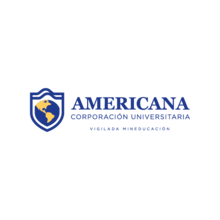Information and communication technologies to strengthen school coexistence in institutions of the Atlántico department, Colombia
DOI:
https://doi.org/10.21803/ingecana.4.4.898Keywords:
ICT, pedagogical practices, practices, school coexistence, experimental designAbstract
This research formulated a theoretical and empirical approach regarding the use of Information and Communication Technologies (ICT) in pedagogical practices to strengthen school coexistence in educational institutions of the Atlántico Department in Colombia. The study was based on theories such as constructivism, behaviorism, cognitivism, and sociocultural theory. Conducted under an interpretative paradigm and phenomenological method, it employed observation and semistructured interviews with three key informants, followed by coding, categorization, and triangulation. Four categories emerged: ICT usage, technological tools, teaching experiences, and emerging theoretical foundations. Findings showed that a strategic and ethical use of ICT fostered inclusive and harmonious school environments by reducing bullying, exclusion, and conflict through the development of social skills, empathy, and mutual respect. A complementary experimental design was conducted to corroborate the hypothesis, with ANOVA showing statistically significant differences in key coexistence variables.
Downloads
References
1. Arroyave, et al. (2021). ICT in School Coexistence. Digital Education Journal, 10(2), 172-186.
2. Cabero, J., & Ruiz, J. (2018). Curricular Integration of ICT. Aljibe Editorial.
3. IDB (2020). Technology and Inclusion in Education. IDB Publications.
4. OEI (2021). ICT and Educational Innovation in Latin America. OEI Press.
5. Ortega, F., & Rey, M. (2022). Sociocultural Perspectives in Digital Education. Global Pedagogy Review, 13(1), 45-59.
6. Ortega, M., & Paz, G. (2022). Innovations in School Culture Through ICT. Journal of Education Technology, 5(3),
98-112.
7. UNESCO (2008). ICT in Education. UNESCO Publication.

Downloads
Published
Issue
Section
License
Copyright (c) 2024 Carlota Genoveva Sarmiento Domínguez

This work is licensed under a Creative Commons Attribution 4.0 International License.





